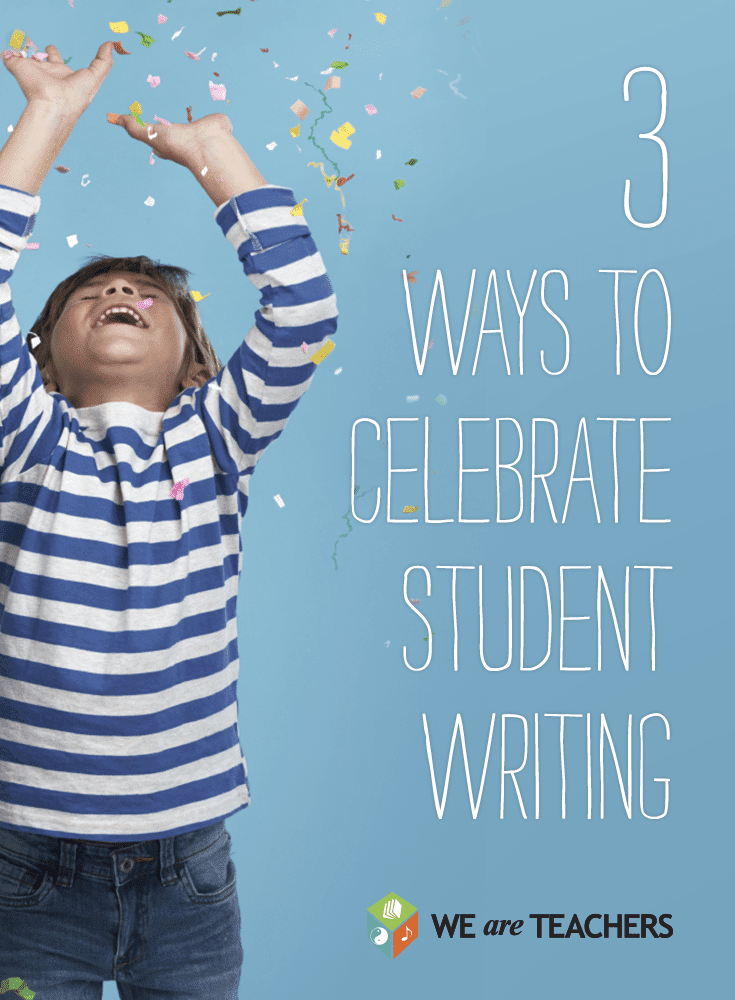Are your students staring at a blank page during writing workshops? If so, these three teachers share stories of how they motivated their students to write great stories.
1. Write Animal Picture Books
Matthew Winner, teacher/librarian at Ducketts Lane Elementary School in Elkridge, MD, has his students write their own animal-themed picture books this time of year. They start by reading Daniel Kirk’s “Library Mouse.”
“We break down the picture book into a beginning, middle, and end,” he says, “That’s followed by having them do research on an animal of their choice. Animals are an easy hook for them because it’s what they’re seeing in a lot of picture books and most kids like animals.”
His students collect three facts based on these questions:
- What does your animal look like?
- Where does he live?
- What does he eat?
Next, they dig deeper. “They have great imaginations,” he says. “They make up three things about their main character.”
One example was “Piper the penguin loved to skateboard, do tricks, and wished he could skateboard forever.” Once the books are complete, the school hosts an author’s tea where the students read from their books to their parents, teachers, and other students.
2. Create Stories With Multiple Endings
Since most of the students in Ryan O’Dell’s seventh grade class at Maplewood Middle School in Maplewood, New Jersey, have seen and enjoyed “The Hunger Games,” “Divergent,” and other Sci-Fi movies, he has his class write in this genre. He suggests they read Ray Bradbury and other science fiction heavyweights. “They have experience writing argumentative essays,” he explained. “I have them pick a topic that’s in the news, maybe genetic testing, an environmental issue, or another topic that they care about. They take their research and turn that into fiction. This gives them a starting point.”
His students have to write a minimum of 15 pages. Often they double or triple that number. One student’s story stretched to 80 pages. All of the books have multiple endings. “It’s cause and effect,” he explained. “If this happens, then the story can go this way or that way. One student had 32 different endings in her book.”
“We talk about what needs to be in the story,” he said. “They develop different traits for their characters, create a theme, and a summary.”
What helps is that he pairs up his students. Both write their own stories and both serve as one another’s editor. “It’s hard to see mistakes in our own work,” he said. “That’s why we need an editor for our books. The students work well together; they get invested in the stories they are writing and editing.”
3. Pen a Play
At Springfield Township Middle School in Oreland, PA, Erin Bloom’s seventh grade classes partnered with Philadelphia Young Playwrights (PYP). Resident teaching artists from PYP visit the classrooms twice a week from November to January.
“During the course of these few months, students were introduced to a variety of plays, ranging from Shakespearean plays to modern day Broadway musicals,” Bloom says. “Over the course of the unit, students wrote monologues which they developed into full scenes and then one act plays.”
Some students chose to write futuristic plays, while others picked historically-based plays. One was based on Greek mythology and served as a satire for modern day politics.
One of the introductory activities was to introduce the students to writing dialogue and stage directions by having them watch a two-to-three minute clip of one of their favorite movies. They recorded the dialogue; then, they went back to the scene and added stage directions. “This activity helped the students discover how writing a short story differs from writing a script in that so much is provided by the actors, their delivery of lines, and their movements,” she says.
Then the students wrote one monologue per day for a week until an idea stuck. The students placed one character inside a familiar setting and another character in an unfamiliar setting.”
The playwriting culminated in a festival where the students performed each other’s work. Administrators, family members, and other students attend the event. “The student’s pride motivates them,” Bloom says. “Knowing that their work will be performed on stage is a driving force.”
What kind of writing is your class doing right now?

